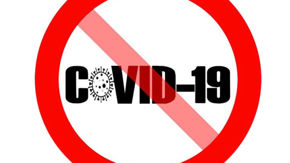My dad was a man of few words—quiet and gentle, not one to talk about himself. He lived with Parkinson’s, but he never let that define him. Not long before he passed, I asked him how he wanted to be remembered. “Just the facts,” he said.
His reply has lingered with me—not just for its humility, but for what it says about legacy. It’s not about titles or accolades. It’s about what’s true: How you show up day to day. The way you treat people. The values you act on, even when no one’s watching.
For senior leaders this is an important reminder. Because while it’s natural to focus on big goals and results, I believe it’s the quieter choices that leave a deeper imprint.
So how do you shape that kind of legacy?
Self-Reflection Goes a Long Way
In my work as a leadership coach, I often help leaders bring clarity, self-awareness, and intention to the everyday choices that help shape their legacy. Here are two self-reflection questions to ask yourself.
What do I want to be known for?
Step back from the day-to-day and ask yourself this deceptively simple question. Taking the time to write down—rather than just think about—what you want to be known for can bring surprising clarity as it helps to concretize abstract ideas.
One leader I worked with described her aspiration this way: “I want to be known as someone who invested time in relationships, gave honest feedback, and helped people grow into roles they weren’t sure they were ready for.”
Consider reflecting on:
- What do I want peers and direct reports to say about me when I’m not in the room?
- What tone do I set (even unintentionally) in meetings, emails and other communications?
- What qualities or values do I want to consistently demonstrate in my daily interactions?
- How do I want people to feel after working with me?
How do others experience me?
If you’ve been in a senior role for a while, you likely have a sense of how others see you. But self-perception only tells part of the story.
Invite feedback from a few trusted colleagues who see you in different contexts. Whether you’re making the ask in-person or via email, you can say: “I’m reflecting on the kind of impact I’m having. Would you be open to sharing your experience working with me?”
A few prompts you might offer:
- What are two or three words you’d use to describe me at work?
- What’s something I might not realize about how I show up?
- Where do I make the greatest impact?
Remember to keep an open mind. Some insights might surprise you; others might confirm what you already know. Both are valuable for increased self-awareness.
Make Adjustments
This is where the real work begins—translating insight into intentional action. It’s about bridging any gaps between the leader you want to be known as and how others experience you now.
For example, you want to be known for empowering others, but the feedback you’ve received suggests you’re often too busy or take on too much yourself. This disconnect is a good starting point.
Rather than focusing on big gestures, look for small, consistent shifts, such as:
- Making more intentional decisions to delegate
- Carving out space for informal access
- Sharing your thought process more openly
Say you want to be remembered as a leader who champions others and helps them grow into roles that they weren’t sure they were ready for. However, others experience you as being more focused on outcomes than on the people behind them. Even if you genuinely value your team’s contributions, your communications may not fully reflect that. Some shifts you might make to reinforce your focus on people, not outcomes, might include:
- Calling out others’ contributions at meetings
- Acknowledging specific efforts, not just results
- Checking in informally to show you’re interested in their growth
- Carving out time for career development conversations
Or, maybe you want to be seen as calm and steady under pressure—but feedback suggests you can come across as abrupt or rushed during stressful moments. In that case, small shifts might include:
- Slowing down before responding under pressure
- Being upfront about challenges without adding to the tension
- Modeling a steadier tone, even when stress is high
Let the Facts Speak for Themselves
In the end, my dad wanted to be remembered with “just the facts.” The truth of how he lived. It wasn’t until after he died—and people in his Parkinson’s community shared stories—that I began to appreciate the meaningful impact he had.
And while his story is personal, the lesson is universal: lasting impact is shaped by what’s consistent, not necessarily what’s loud. From my experience, it’s the simple, everyday actions that build trust, reinforce your values and shape how people will remember you.











